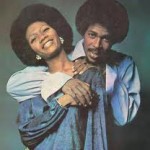Bob Andy’s Songbook is among the revered albums produced by Jamaican popular music. But those who gathered at the Medical Sciences complex at the University of the West Indies (UWI), Mona, recently, came to hear from the singer-songwriter’s storybook, as he spoke about his life in the Reggae Talk series.
Hosted by Professor Carolyn Cooper, the annual series is organised by the Department of Literatures in English. Andy’s talk took place on International Women’s Day. Appropriately, Tanya Shirley, who is a faculty member of the department, did poetry, including A Chant Against Fear and Said By a DJ at an Uptown Dance.
Herbie Miller, curator of the Jamaica Music Museum, introduced Andy, in part, as “a cultural and sociopolitical iconoclast” and “simply one of the finest and most diverse singer-songwriters this island has yet produced”. And Bob began by playing Love Rescued Me (recorded in Florida in 2012), a distillation of his life experiences, which was the first song he did after major surgery.

In the song, Andy speaks about his childhood and that is where the talk began. As a child named Keith Anderson, born in Kingston, there was physical beating and emotional mauling, with Andy saying, “From that time ’til now, life is an uphill climb to the bottom.”
In Kingston with his mother, Andy was taken to Up Park Camp, where she worked for the Johnsons. She locked him in a room (as was common practice at home) and the upset child hit on the door until the Johnsons’ children came. They developed a friendship and he spent a lot of time at Up Park Camp with the officers’ children and also visited Newcastle in the Blue Mountains. Andy attributed many of the English words he used in later life to that period, as his schooling was sporadic at best.
At seven years old, his grandmother took him to Westmoreland; Andy said that her affection was the only demonstrative love that he had – “and she just up and died”. Andy’s mother gave him away at his grandmother’s wake in between sips of tea, and that experience lead to beatings and Andy running away from where he lived in Westmoreland.

One escape attempt resulted in him living in Russia, Savanna-la-Mar, with a family which already had 19 children.
“The important thing was to go to bed last. If you went anything but last, you would be slept in. Is 20 children on one double bed!” Andy said.
Eventually, he was taken back to Kingston to take care of one of his mother’s children, but Andy had to send himself to school when adults would not.
Andy said: “I was good at composition. I could write a good story.”
There was running away of another kind, as Andy recalled: “One day, I said I was going to go over to Maxfield Park [Children’s Home] and tell them my mother died. She was not playing that role in my life.” He was taken in, but after the police investigated, it was found out that his mother was alive. Andy ended up in court with her.
“The judge said, ‘You want to go home with your mother? I said, ‘No, I get too much beating,'” Andy said. Consequently, he became a ward of the state.

START OF MUSICAL JOURNEY
It was there that music began for the young Keith, as there was a piano in the matron’s quarters.
“I just sat in front of that piano for days, nights,” Bob Andy recalled.
He could not play, but being close to the Champion House club helped. It was the first place Andy saw Chris Blackwell and where he saw Tony Gregory play the piano. He memorized Gregory’s finger positions, went back to the home and replicated them.

He soon found that he could also get the sound he wanted on the black keys and Bob Andy was on his way to a stage of his life in music.



You must log in to post a comment.